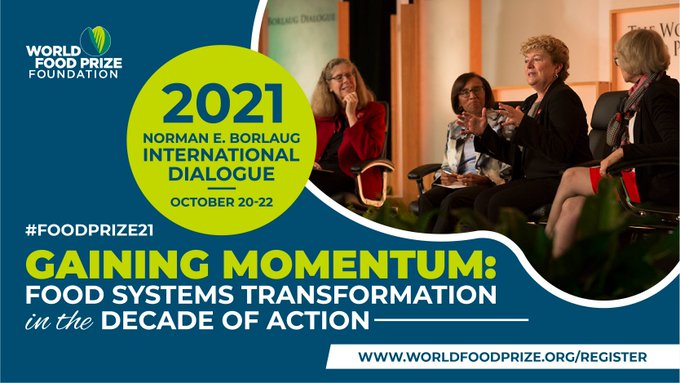
- Matt Murray, U.S. Department of State Acting Assistant Secretary (host)
- Sarah Evanega, Cornell University Alliance for Science (moderator)
- Beth Bechdol, DDG, FAO
"The FAO Strategy for Private Sector Engagement is the outcome of an inclusive consultation process. It builds on the needs expressed by FAO Members as well as on the recommendations and feedback received from private sector representatives."
- Nassib Mugwanya, North Carolina State University
- Dr. Walter Suza, Iowa State University
Beth Bechdol, DDG, FAO, explained
(@36:36) how the framework is angered on 4 aspirations: (a) better production
which leads to better nutrition, which can lead to a better environment and
hence a better life for everyone.
“How can producer be helped to produce more with less? Trade-offs need
to be balanced between economic, social and environmental sustainability. The
increased production will have to be realized while minimizing environmental
damage and protect biodiversity while preserving and restoring the planet
ecosystem. Agroecology and biotechnology are both unique approaches.”
“At FAO we have more fully
embraced the concept of innovation, more than in the past. For the first time FAO
has a chief scientist as part of its senior management. We also established a
dedicated office for innovation. As we think about the major outcomes of the Green
revolution of the fifties and sixties we saw it was the result of an investment
in research and technology investment. But we have to acknowledge the green
revolution came with trade-offs, particularly to environmental outcomes.”
“We are particularly excited about the next generation of gene-editing technologies
which can improve plant and animal population.” For climate smart agriculture Agroecology
and Biotechnology practices have very important role to play. It is therefore
critically important to include for this a myriad of partners. We recognize -
more than ever before as a global organization - the importance to bring in as
a partner the private sector.
“The FAO Strategy for Private Sector Engagement needs to be country
owned and led. It has to be action oriented and how a private sector enterprise
can make a difference for at farmer level and in the field”.
FAO Strategy for Private Sector Engagement 2021-2025This strategy specifically targets the different types of the private sector from large national and multinational corporations, to financial institutions, micro, small and medium enterprises (MSMEs), industry and trade organizations and consortia which represent private sector interests, farmers and farmers’ organizations, producers’ organizations and cooperatives and philanthropic foundations.


No comments:
Post a Comment